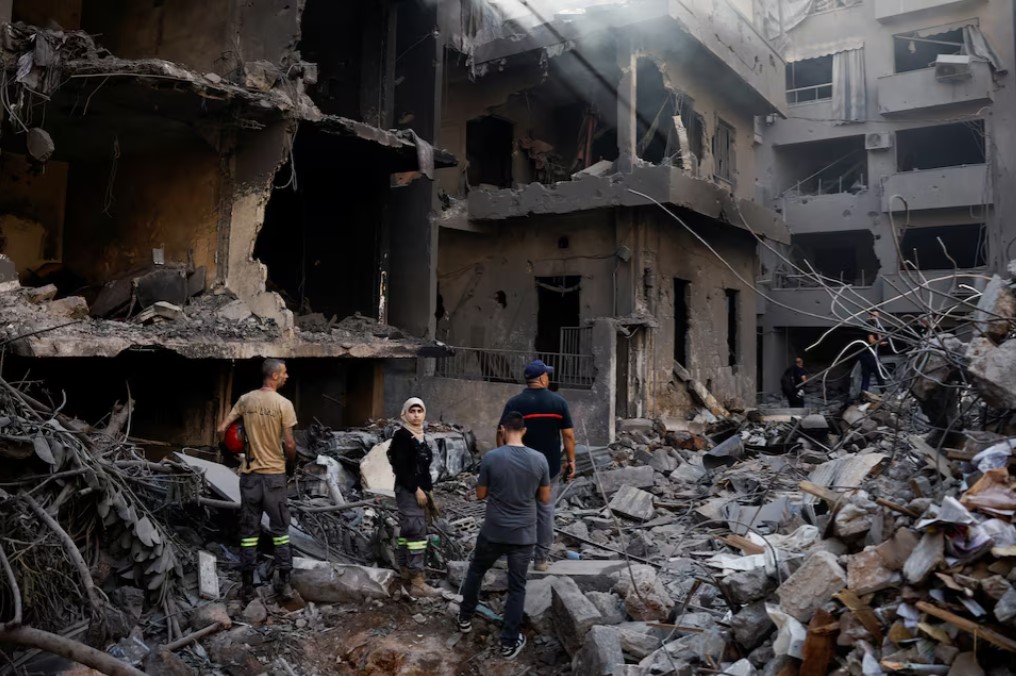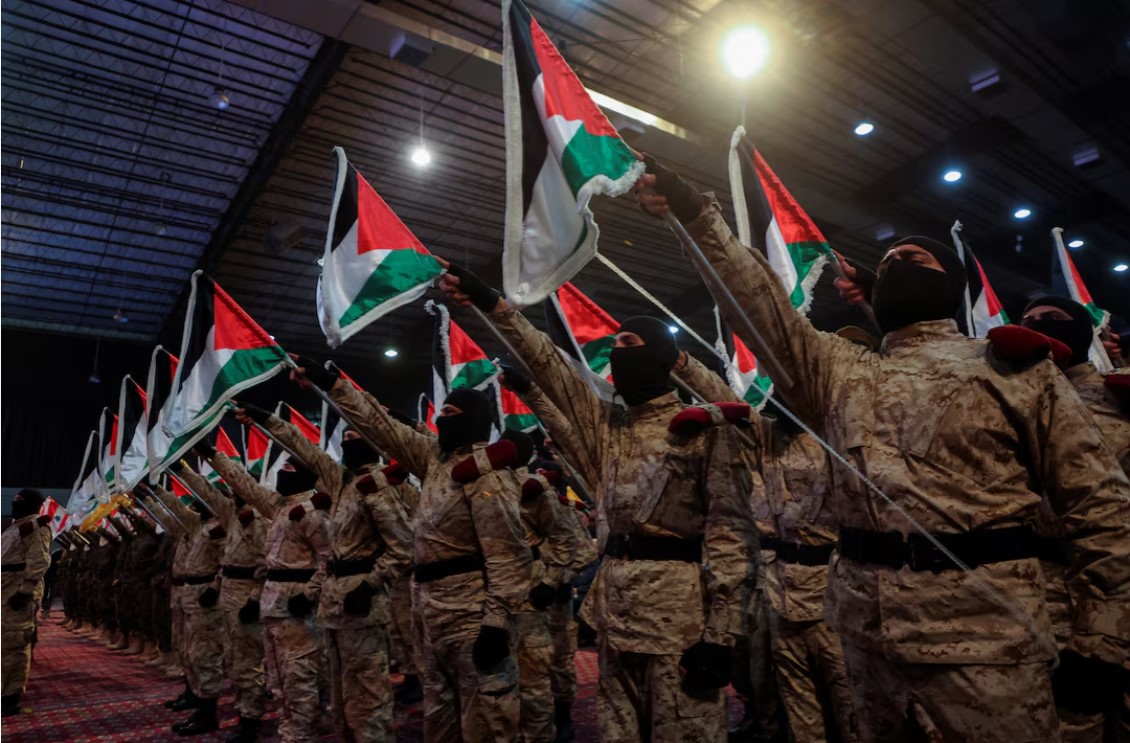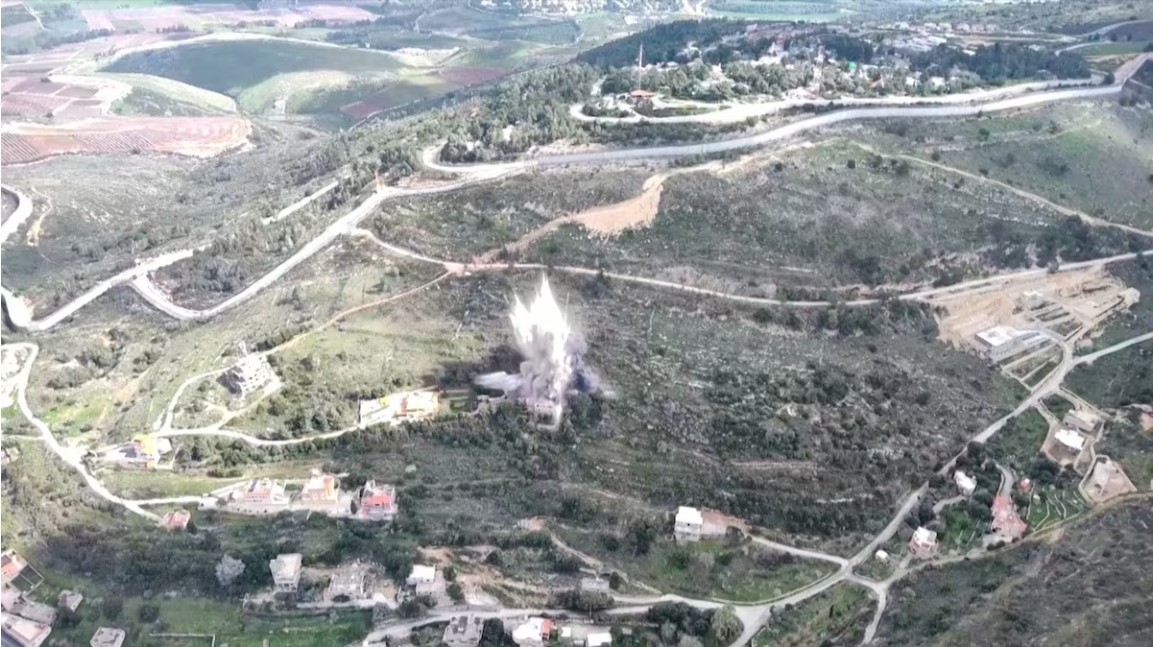
BEIRUT – Hezbollah is preparing for a long war of attrition in south Lebanon, after Israel wiped out its top leadership, with a new military command directing rocket fire and the ground conflict, two sources familiar with its operations said.
Hezbollah has been diminished by three weeks of devastating Israeli blows – most notably the killing of its leader Sayyed Hassan Nasrallah. Hezbollah's command was disrupted for the first few days after Nasrallah's Sept 27 assassination until Shi'ite militants established a new "operations room" 72 hours later, the two sources – a Hezbollah field commander and a source close to the group – told Reuters.
Nasrallah was killed, along with other Hezbollah leaders and an Iranian commander, when Israel located and bombed his deep bunker below Beirut.
The new command center has kept functioning despite subsequent Israeli attacks, meaning fighters in the south are able to fire rockets and fight according to centrally issued orders, according to the sources, who asked not to be named in order to discuss sensitive matters.
A third source, a senior official close to Hezbollah, said the group was now waging a war of attrition.
Avraham Levine, an analyst with Israeli think-tank Alma, said it should be assumed Hezbollah was "well prepared and waiting" for Israeli troops and that it was no easy target.
READ MORE: Israeli strikes kill 22 in Beirut as Hezbollah leader evades assassination
"The fact that the chain of command has been damaged does not take away the ability to shoot Israeli communities or try to hit" Israeli forces, Levine told Reuters, describing Hezbollah as "the same powerful terror army we all know”.
Fighters have the flexibility to carry out orders "according to the capabilities of the front," the Hezbollah field commander said, described the new command as "a narrow circle" in direct contact with the field. It is rare for a Hezbollah field commander to speak to international media.
He said the new command operates in total secrecy and gave no further details about its communications or structure. Hezbollah has not named a new leader after Nasrallah, with the most likely successor also killed. The Shi'ite group's deputy leader Sheikh Naim Qassem said this week he supported ceasefire efforts, but said the group's capabilities were intact.
Another source familiar with Hezbollah's operations said the group's dedicated, fixed-line phone network was "essential" to current communications. Sources have said the network survived attacks on the group's communications in September.
A statement this week signed by the "operations room of the Islamic Resistance" said fighters were resisting incursions and "watching and listening" to Israeli troops where they least expect it – an apparent reference to concealed Hezbollah positions. The statement, the first public acknowledgment of the existence of a new command, did not name its members or say when and in what context it was established.
Hezbollah's media office did not respond to a request for comment ahead of publication, which included a detailed summary of the information provided by the field commander and other sources. After this story was published, Hezbollah's media office said in a written statement that the part of Reuters' story "attributed to a Hezbollah field commander is completely false" and that there are "no sources in Hezbollah".
Asked about the situation in Lebanon, the Israel Defence Forces (IDF) referred to previous public statements.

Tunnel warfare
Israel announced on Oct 1 that ground forces had entered southern Lebanon, initially with commando units, followed by regular armored units and infantry units. Reservists from the 146th Division are now on the ground, the military said on Tuesday, bringing to four the number of divisions on Lebanese soil.
Israel has not said how many soldiers are on the ground, but an Israeli division usually consists of more than 1,000 fighters.
The troops are fighting close quarters battles with Hezbollah units, Israel says. Twelve Israeli soldiers have been killed in southern Lebanon or north Israel since the start of the operation, it says.
Hezbollah possesses an extensive tunnel network in southern Lebanon, both the group and Israel say. The tunnels grew after the group's 2006 war with Israel, according to a 2021 report by think-tank Alma. Israel estimates they extend for hundreds of kilometers.
ALSO READ: UN inquiry accuses Israel of seeking to destroy Gaza healthcare system
The Hezbollah field commander said the tunnels "are the foundation of the battle". Hezbollah had toiled for years to build them, he added. "Their time has come," he said.
Israel's military has released video footage it says shows deep tunnels captured by its soldiers. One video released on Oct 5 appears to show an underground room equipped with fixed line telephones. Reuters could not verify the date or location of the footage.
Beginning Sept 23, Israel dramatically escalated airstrikes, claiming to have destroyed tens of thousands of Hezbollah rockets mostly in southern Lebanon, the Bekaa Valley, and Beirut's southern suburbs.
Israeli officials have said that the fact that Hezbollah has been firing 100-200 missiles and rockets a day on average and not the thousands expected, shows significant weakening.
The Israeli military says it has killed hundreds of Hezbollah fighters, including most of the senior command of the Radwan special forces.

Guerrilla tactics
In one deadly engagement last week, concealed Hezbollah fighters attacked Israeli troops as they advanced in the area of Odaisseh, a village in the south, just after Israel had pounded it with artillery and airstrikes, the source close to Hezbollah said.
The Hezbollah fighters used mines and Russian-made Kornet anti-tank missiles in their ambush - the types of weapons used against Israeli forces in a war in southern Lebanon in 2006.
The source appeared to be referring to an incident in which the Israeli military said five soldiers from a commando unit were killed and five others severely wounded in a gunbattle on Oct 2.
READ MORE: Middle East conflict cycle should be stopped
The Israeli military declined to give details beyond its already published statements. That same day, two other soldiers were killed in a separate incident announced by the Israeli army.
Israel says it aims to secure the return of tens of thousands of people who evacuated northern Israel after Hezbollah began firing rockets a year ago in solidarity with Hamas in Gaza.
Lebanese authorities say Israel's offensive has uprooted more than 1 million people in Lebanon - predominantly members of the Shi'ite community from which Hezbollah draws support.


